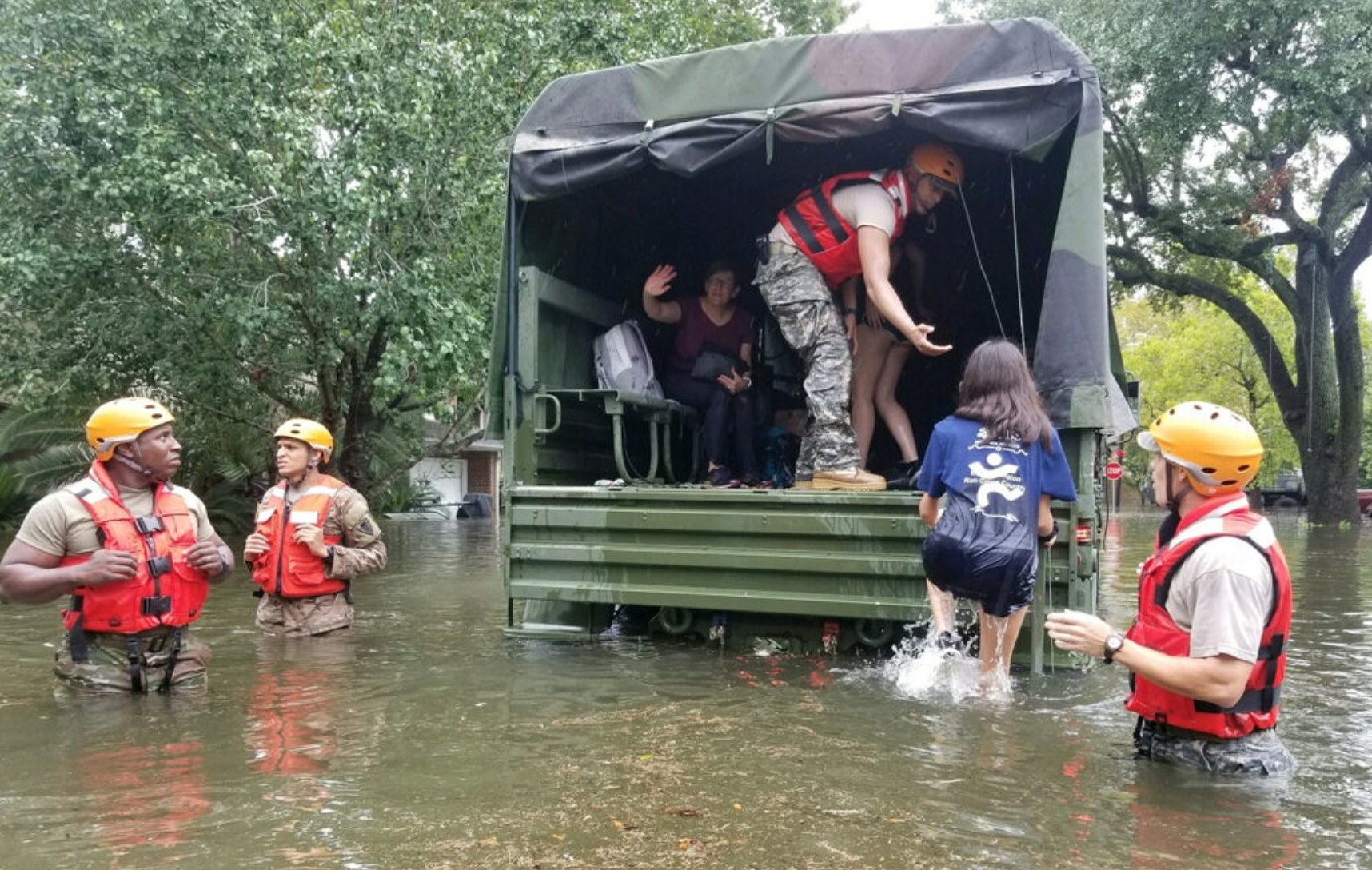At least 37 people have been reported dead in Texas as Harvey, now a tropical depression, again made landfall Wednesday, this time in Louisiana. As local officials move to secure federal funding for disaster recovery, Mayor Sylvester Turner said Wednesday he hopes the Federal Emergency Management Agency will provide funds upfront rather than ask the City of Houston to put up the money and wait on reimbursement.
"We need FEMA en masse, at all of the shelters, all throughout our regions," Turner said at a press conference Wednesday.
The disaster is shaping up to be one of the costliest yet, after hitting the fourth largest city with the second busiest port in the country. It also hit the Coastal Bend area particularly hard, including Port Aransas, caused flooding in Beaumont and Port Arthur and made landfall again in Louisiana.
In addition to housing displaced residents and clearing debris, the Houston area will have to contend with a whole host of costly and dangerous issues in the wake of Harvey. Early Thursday morning, for example, a flooded chemical plant in Crosby, east of Houston, reportedly exploded after the highly flammable organic peroxides held at Arkema Inc. began to heat up without power to cool the facility. Residents are already dealing with colonies of fire ants adrift in the floodwaters as well as the looming threat of a booming mosquito population. And the country has already seen a spike in gas prices.
Unseen dangers in the air
"Air pollution is one of the unseen dangers of the storm," said Dr. Elena Craft, the EDF's senior health scientist. The forced shutdown and storm-related damage of Houston's petrochemical plants has pushed large amounts of pollution into the air, putting people with asthma or other health problems at risk. "The shutdowns include the Houston-area refineries of Exxon Mobil, Petrobras and Shell, as well as Chevron Phillips’ Cedar Bayou petrochemical complex," according to a press release from the Environmental Defense Fund, an advocacy group.
“Refineries and chemical plants need to be shut down during natural disasters, but they don’t have to pollute and break the law when doing so,” said Luke Metzger, director of Environment Texas, in the release. “Industry needs to modernize their facilities and take better care to not make a bad situation worse with their health threatening pollution.”
Schools scramble
After postponing its start date until after Labor Day, the Houston Independent School District - the largest in Texas - also said it would provide three free meals each day for all of its students for the entire school year.
“The flooding that is affecting the city of Houston has been devastating to so many. Some of the areas that are the hardest hit are filled with working parents whose limited funds will need to go toward recovery efforts,” said Houston ISD Superintendent Richard Carranza, in a release. “This waiver will give our families one less concern as they begin the process of restoring their lives. It will also provide a sense of normalcy by allowing students to have access to up to three nutritious meals each and every school day.”
With many schools in the area currently serving as shelters or experiencing flood damage, it's unclear whether they can return to class as anticipated. Some 200 school districts were affected by Harvey. The Aransas County Independent School District is closed indefinitely as schools in Austin prepare to enroll thousands of displaced students.
Bumper crops busted
Livestock and crops took direct hits during the storm. "An estimated $150 million worth of cotton has been lost as the storms ripped the bolls off plants and left white fiber strewn across fields," according to Reuters, which also reported some 1.2 million cattle lived inside the 54 counties impacted by the storm, according to Texas A&M AgriLife Extension Service. This year's cotton harvest was expected to be a bumper crop.
Even crops not flooded out are vulnerable. Though the bulk of the state's rice had been harvested already, the Texas Tribune warned, "...wind and water likely damaged storage bins, leading to more crop losses."
And the Food and Drug Administration emphasized the risk to all crops, regardless of whether they were flooded. "Even if the crop is not completely submerged, there may still be microbial contamination of the edible portion of the crop," the FDA said in a release. "There is also the potential for plants to take up chemical contaminants."
Real estate roiled
In a city that already has large gaps between the need for and supply of affordable housing, the storm will likely increase pressures on the rental supply, pushing rents upward. According to a report from the National Low Income Housing Coalition, Houston has a shortage of some 626,192 available and affordable units for extremely low-income renters.
In the office and retail real estate world, Harvey could also worsen existing problems in the Houston area, which was facing a sluggish energy sector and weakened retail sales.
Even with those slowdowns, Houston was still a growing city, posting gains for homebuilders and the construction industry, but also squeezing them. That will likely increase now and homeowners can expect construction costs to rise.

